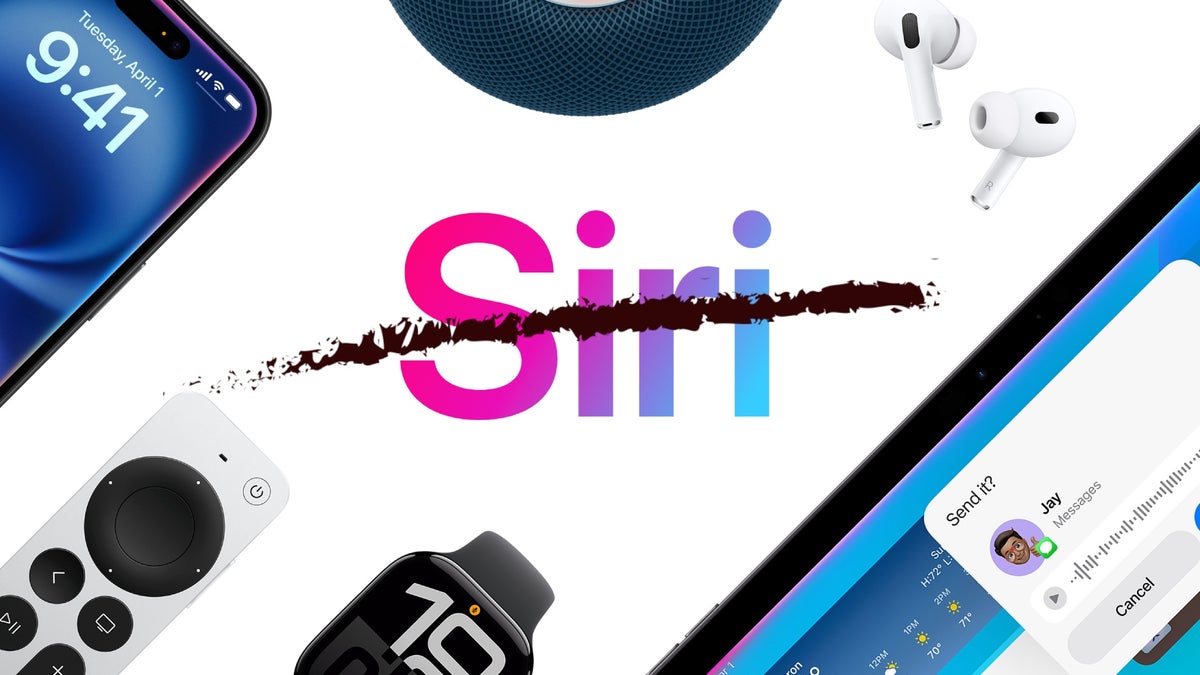Imagine this: you pick up your iPhone, you long-press the power button, and a soothing voice beckons you to speak your desired command. You ask it to find a three-day weekend in the next two months when you have no scheduled events in your calendar and flights are under $250 to a city with mild-but-not-boring weather, book a stay at a four-star Airbnb, and notify your siblings you’ll beoff the grid, oh, and to play a lo-fi playlist so that you feel productive even though you’re clearly slacking.
Suddenly, you wake up.
Your phone’s screen reads, “Sorry, I didn’t quite catch that. Did you mean ‘Play Led Zeppelin’?”
I think that the onlyway Apple could save Siri is by actually killing it off.
It’s been, what, more than thirteen years since iPhones have had access to Siri, and it has never felt like Apple has the upper hand in digital assistants. Google has been dominating the field since the early days of Google Now, through the golden age of the Google Assistant, and is now pretty much impossible to catch due to the next-gen Gemini assistant, which combines the forte of a smart assistant with the intelligence chops of an LLM agent.
By now, the damage is done: Siri will probably always be known for its poor capabilities, inability to decipher natural-language queries, and overall ineptitude. It’s pretty much impossible to bounce back from such a negative image that has been picking up all kinds of slack throughout the years.
Apple’s next smart assistant needs a reputation makeover
I am convinced that Apple needs to give Siri a major reputation makeover when it eventually fixes Siri, which might happen in 2026, 2027, or beyond.
A name change should be the bare minimum here: no matter how much more capable Siri becomes, it will always be just that, “Siri.” It’s a well-known and established part of Apple’s ecosystem, which is generally great for brand recognition, but in this particular case that’s actually hurting Apple.
For example, Google hasn’t been afraid to “move fast and break things,” making Gemini the spiritual successor to the Google Assistant, which automatically plays with the psychology of it all and subconsciously convinces you that Gemini is much more powerful and capable (which it objectively is).
The only way to fix things is to let Siri die and emerge from the ashes reborn as a new smart assistant.
What Apple’s next smart assistant should be like
The most recent scoop on the matter suggests Apple’s next version of Siri will be powered by large-language models, which would help it become that much more conversational and interactive.
However, it doesn’t seem that Apple is aiming to develop an in-house LLM from the ground up but will instead collaborate with Anthropic or OpenAI. These two companies pull the strings behind Claude and ChatGPT, which are among the more capable and well-known models out there. A few months ago I kept hearing the rumors that Google itself could be viewed as a partner in revamping Siri, but Cupertino is probably weighing its options too carefully so that it won’t give its rival too much power.
With that in mind, I can imagine a future Apple smart assistant that is more proactive, conversational, and capable of executing complex multi-step app actions (which was already advertised as a future capability of the assistant anyway).
As usual with Apple, the focus with this assistant will be the privacy and on-device processing of all data, but for the sake of sparing user resources, we might see some offloading to dedicated Apple servers that will take care of any heavier AI requests.
And, of course, all of that goes along with a nice name change, a new interface following the Liquid Glass design language, and a promotional campaign to showcase the much better capabilities of the new assistant in comparison with the Siri of old.
I don’t know, maybe I’m asking too much. Maybe people are content with an assistant that’s best at setting alarms and timers. Maybe nobody wants a futuristic smart assistant that knows you and understands you.
One can dream.









